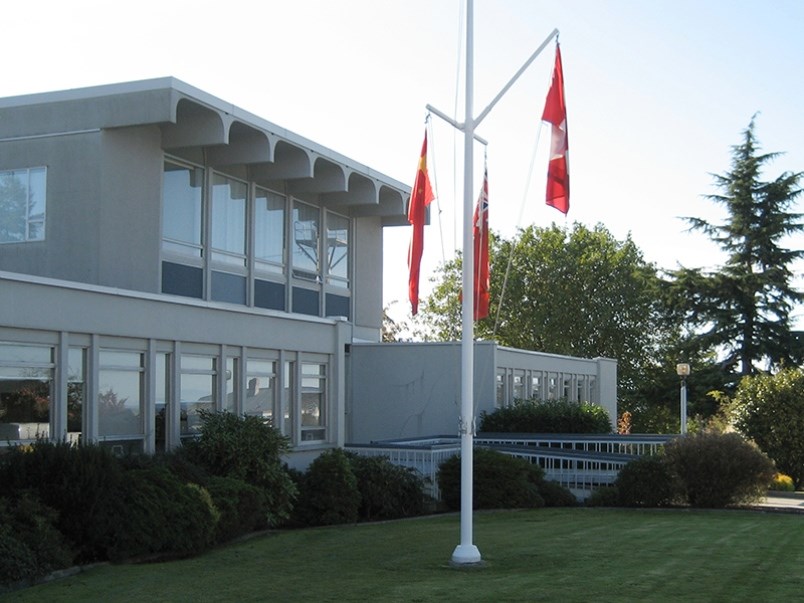City of Powell River has outlined responses to questions raised by resident Paul McMahon regarding automated curbside collection of garbage.
In correspondence to the city’s finance committee meeting on November 26, McMahon stated a report on automated curbside collection did not define the project cost and expense in any detail, but rather, identified revenue. He stated the operational costs and expenses are not presented and should include proposed expenses for increased levels of service.
At the finance committee meeting, manager of operational services Rod Fraser outlined a proposal for automated curbside collection, which would move to garbage collection being automated using specially designed carts for the purpose, being picked up using mechanized arms on garbage trucks. Other components of the proposed program include discontinuing use of garbage tags; a recycling pilot project, going to weekly collection in route E; along with laying the groundwork for full organics collection when a local processing facility is in operation.
McMahon had read Fraser’s report prior to the meeting.
City chief administrative officer Russell Brewer, in a written response to McMahon after the November 26 meeting, stated the costing will be considered as part of the budget process over the next couple of years.
“The capital cost for the waste cart purchase will be considered as part of the 2021 budget and they are included in the preliminary financial plan that was presented at Thursday’s finance committee,” stated Brewer. “The 2022 budget process will include consideration of the increase to the levy to cover lost revenue from the discontinuation of tags and any adjustments needed for increase in participation and offsetting efficiencies achieved through automated service.”
Brewer stated it is likely that organics collection will be considered at the 2023 budget, provided a local organics processing site is in operation by that time.
For recycling, a six-month pilot program would begin in January of 2021, where recycling pickup will be provided every week to customers on route E, rather than every second week, as is the current service, according to Brewer.
“The intention is to gather information and feedback on a potential move to weekly recycling for the entire community,” stated Brewer. “A report will be brought forward prior to the six-month period ending, which will provide a report card of how the pilot went, highlighting expenses and participation.”
McMahon had asked about the city’s financial commitment to the resource-recovery centre that is being administered by qathet Regional District (qRD) at the city’s former incinerator site, and the prospect of an organics processing facility in Powell River.
Brewer said with respect to the city’s financial commitment to the resource-recovery centre and the organic processing facility, both of those projects are qRD initiatives, and part of the regional waste management service.
“The regional waste management service is funded by both electoral area and city residents through qRD tax requisition,” stated Brewer. “There is no direct city financial commitment to the facilities for those projects, although costs would be captured through the tax requisition that comes to the city from the qRD, and which the city collects on behalf of the qRD as you may have noticed on your tax notice. It’s listed as qathet Re. District on the notice but also includes other qRD regional services such as qRD admin, regional parks, 911, cemeteries, emergency preparedness, et cetera.
“There will be a shared cost with the qRD for a planned access road to the facility from the highway that is tentatively planned as a capital cost in the preliminary financial plan for 2021 and proposed to be funded from Community Works gas tax funding.”
Brewer stated the organic processing facility is also a qRD initiative and it is currently out for a request for proposals that closes in January.
In an interview, McMahon said he was disappointed with the response.
“It’s an example of council’s inept ability to manage financial projects,” said McMahon. “The projects seem to be initiated without a meaningful financial plan, which results in an exhaustive, laborious initiative to try to gain a minimal amount of public support after the fact.”
McMahon said this project was first tabled in 2016. He said he happened to be there and has the report and the financial targets that were set at the time.
“All of that is down the drain,” said McMahon. “It’s now four years later and they are talking about going out three more years before they complete this thing. The money they are asking for now is significantly more than was projected and they are only providing two thirds, at best, service that was mandated.
“They are not addressing the financial costs of these proposals. I would have liked to have seen more costing along the lines of the 2016 report.”



